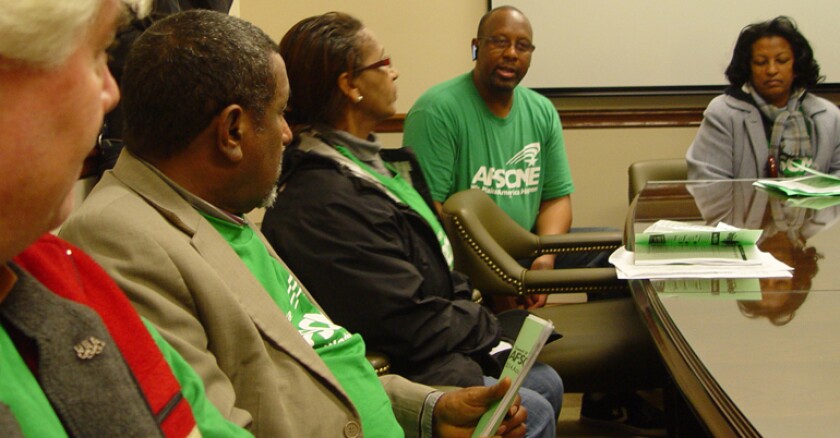Republicans are gaining more control at the federal and state levels than any party has had in decades. State pension plans have suffered from unpredictable returns. And weak revenues are causing the most state budget shortfalls since the Great Recession.
"There’s so much uncertainty that changes seem inevitable," said Steven Kreisberg, director of research and collective bargaining at the American Federation of State, County and Municipal Employees (AFSCME).
While much remains unknown, here’s a rundown of the potential legislation and executive branch actions that may come down the pike in the coming months. Our conclusions are based on interviews with union officials as well as state and local associations and HR executives.
Retiree health care
When financial times are tough, governments often look to retiree health care. A continued pull back on new employees' retiree health care is likely. There are also likely to be more cuts to existing employees' benefits -- but only in the states that are legally allowed to do that.Pensions
With investment returns well below expectations, there will be increased pressure to lower the assumed interest rate of returns for state and local pensions.California's largest pension fund, often a trailblazer that other states look to, already dropped its assumed rate of return from 7.75 to 7.5 percent in 2012 and is considering dropping it even farther in 2017. These lower numbers are intended to require states to adapt to the “new normal,” in which returns over 7 percent may be unachievable.
The changes being made may not seem large, but those actions will push already escalating annual employer contribution rates even higher. That in turn will lead to more pressure to reconfigure the benefits themselves. The push to move employees to defined contribution or hybrid pension plans, for example, is likely to continue in 2017.
At the very least, Michigan is likely to re-introduce a plan to move teachers to a 401-k style system in place of its defined benefit plan. This follows actions taken for other state employees in the late 1990s.
Unions
“We’re going to see a number of anti-labor bills,” said AFSCME’s Kreisberg. These include expected right-to-work bills -- which limit the power of labor unions -- in Kentucky, Missouri and New Hampshire.Other anticipated legislation includes efforts to withdraw automatic payroll deduction for union dues in Missouri and some attempts to narrow the types of issues that unions can legally negotiate. In Iowa, for instance, there's a push to stop unions from negotiating their health benefits at the bargaining table.
Workplace
On the administrative side, governments may be putting more money into professional development. As the baby boomers continue to age out of the workforce, it's more necessary than ever to help the Gen Xers and millennials who will fill their shoes. (In general, millennials now make up the largest portion of the workforce, according to the Pew Research Center.)The hiring process itself may also get revamped.
Pennsylvania, which has had one of the more restrictive civil service systems, set the stage in 2016 to reform recruiting and hiring practices in 2017. To encourage young people to join public service, the Commonwealth set up a large millennial-only task force, which will start to deliver ideas in 2017 on how to attract and retain members of their generation.
Compensation
Whether workers get pay raises in 2017 will largely depend on the local or state economy. But high rates of turnover in areas like information technology, social services and corrections will likely prompt legislative requests to increase their salaries.2017 will also likely bring a renewed emphasis on structural reorganizations of HR departments and a continuation of the long-term trend to automate transactional services and focus more attention on strategic goals within central HR departments.
Tennessee, in particular, is looking to emphasize to young people that getting a government job is not so much about good benefits or employment security, but about “the impact you can have and the difference you can make on citizens’ lives," said Rebecca Hunter, commissioner of the state's department of human resources.









